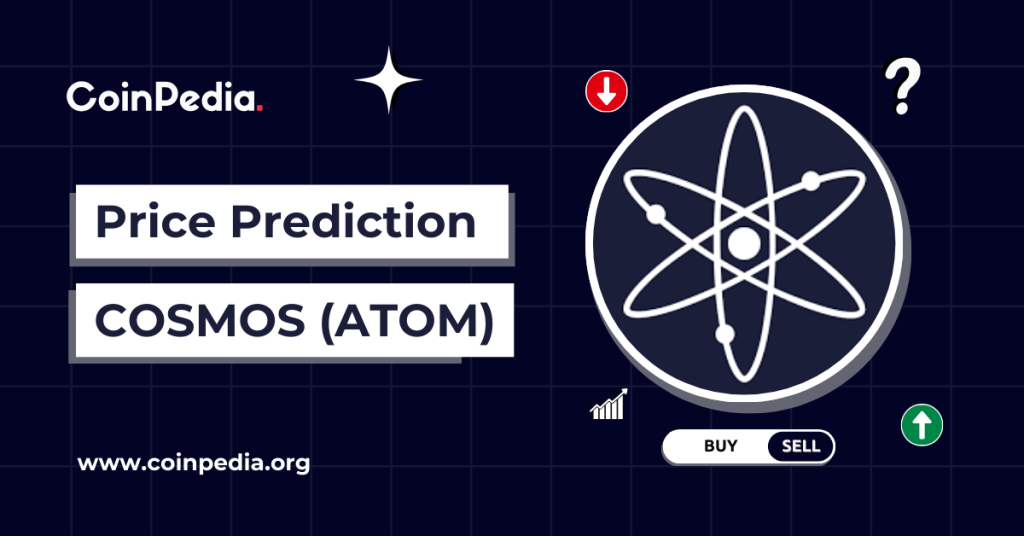Cosmos is a platform dedicated to connecting independent blockchain networks together. The platform facilitates the transfer of data between different blockchains to facilitate the so-called "Internet of Blockchains". ATOM is the native token of the Cosmos network and is used for transaction payments, governance voting, and staking to secure the network.
Cosmos is not a blockchain itself, but an infrastructure for designing dedicated blockchains (called Zones) for applications and enterprises. Building a world composed of many blockchains would be unrealistic if every blockchain had to implement all the networking and consensus code from scratch, so Cosmos provides the Cosmos SDK, a template software that handles these functions.
Cosmos' years of development work on the SDK has made launching a Zone as easy as deploying a smart contract. But this approach is not unique to Cosmos, other projects that combine the idea of application-specific blockchains also provide developers with "blockchains in a box", for example, Polkadot's Substrate framework, similar to Cosmos' SDK.
A unique property of Cosmos is that it enables practical interoperability without including a shared security layer.
Tendermint Core BFT Consensus
Tendermint, the consensus algorithm underlying the Cosmos network, is built as a high-performance BFT SMR ( state machine replication ) platform that replicates services, which can then be modeled as deterministic, non-random state machines. Tendermint Core was created to replicate specialized servers (or state). This is achieved through a special machine that replicates servers and propagates them to the global Cosmos network. This process allows software engineers from Tendermint Core to replicate the blockchain on state machines around the world.
Tendermint's significant technical capabilities allow developers to create their own blockchain platforms without having to build everything from scratch. This is useful because it allows users to create any kind of blockchain system they want, with almost everything already done for them, except their application logic and tokens. Tokens hosted on the Cosmos Network include: Kava (KAVA), Terra (LUNA), Band Protocol (BAND), Aragon (ANT) and Akash Network (AKASH).
The ATOM token also plays a key role in the functioning of the Tendermint Core BFT consensus mechanism, as the Cosmos Hub is a proof-of-stake blockchain platform. Cosmos relies on a network of 100 validator nodes to maintain consensus, security and operational efficiency. In order for the system to function properly, users must stake their ATOM coins.
The role of a validator is to run a full node that verifies network rules and broadcasts votes to the network, subsequently committing new blocks to the blockchain. Validators, in turn, receive income in the form of ATOM based on the amount of ATOM tokens pledged as collateral.
Inter-Blockchain Communication (IBC) Protocol
The Cosmos IBC protocol aims to solve one of the most important challenges facing blockchain systems today: the lack of communication and data sharing between networks.
Interoperability and the ability to communicate with external and internal blockchain protocols are critical to the widespread adoption and technology adoption of blockchain and cryptocurrencies in the real world. Imagine a telephone network that can only communicate with participants within its immediate geographic area. It simply doesn't work. Cosmos IBC is a TCP/IP -like messaging protocol intended to share information and data, ultimately enabling communication between multiple blockchains.
Cosmos SDK
Cosmos SDK is a scalable open-source infrastructure dedicated to building multi-asset public PoS blockchain platforms, such as the Cosmos Hub, and proof-of-authority (PoA) blockchains with admission mechanisms. Simplicity and ease of use are key attributes sought by software engineers in order to build interoperable, application-specific blockchains in a timely manner. The Cosmos SDK is a modular framework dedicated to building application-specific blockchains rather than virtual machine-based applications.
A virtual machine (VM) blockchain like Ethereum was created to host application development on top of existing blockchains as a set of smart contracts. Smart contracts may benefit specific use cases, such as one-off applications. However, they are often ineffective for developing complex, decentralized platforms.
Generally, the generality, sovereignty and technical performance of smart contract technology are limited. Application-specific blockchains powered by Cosmos run a single application and give engineers the freedom to make the types of structural design modifications needed to run the application optimally.
The Cosmos SDK allows developers to use not only pre-built modules, but also their own custom modules, enabling them to test their minimum viability before launching their own public mainnet (a blockchain protocol that has completed testing and is ready for public use) product. Additionally, the Cosmos SDK allows users to connect their own blockchains to the Cosmos network via IBC, increasing liquidity and user adoption. The Cosmos SDK has also been used to build many key blockchain and cryptocurrency projects such as Binance DEX, Kava, Terra, and IRISNet.








